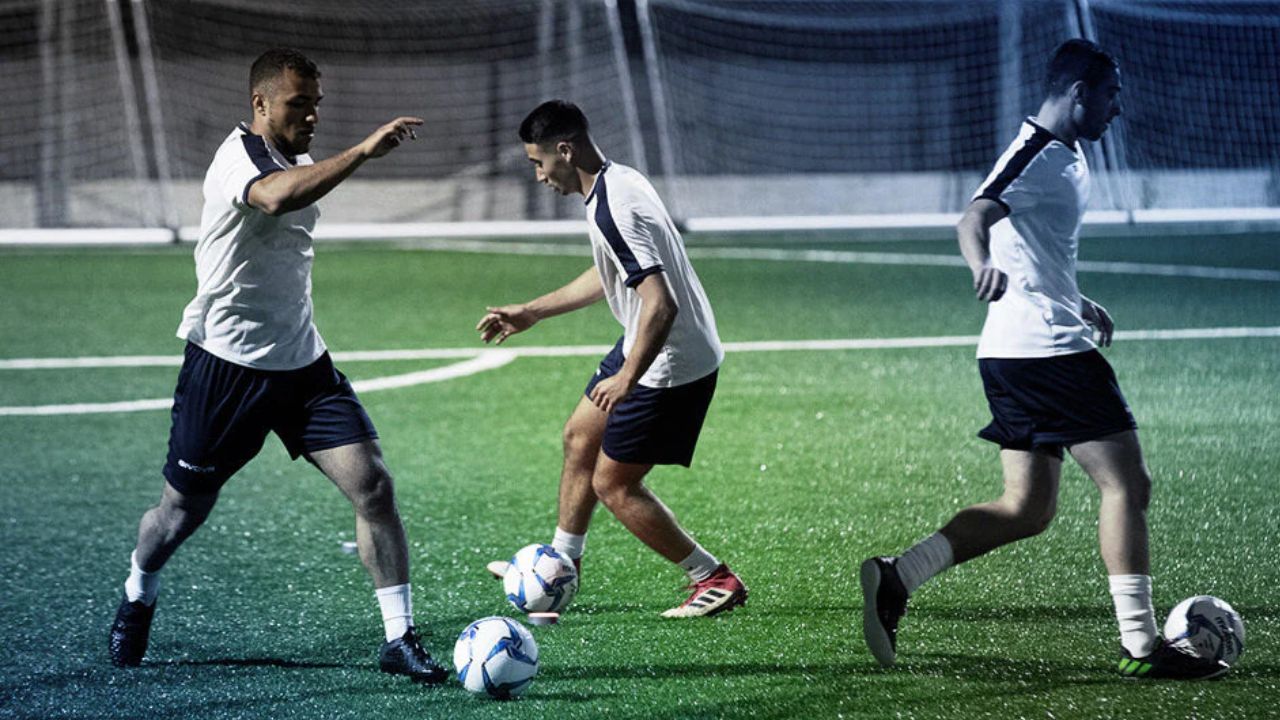Soccer players are known for being in top physical condition. With constant training, matches, and carefully managed fitness routines, they maintain peak performance. But what happens when a player falls out of shape? Recently, German defender Nicolas Süle faced criticism for his fitness, showing that even top athletes can struggle with maintaining the right balance.
So, how do soccer players stay fit, and what can we learn from their routines? Whether you’re an amateur athlete or just looking to shed a few pounds, there are some key takeaways from how soccer pros stay in shape. Let’s break it down.
1. Diet: Fueling the Body Right
A soccer player’s diet is finely tuned to meet their energy and nutritional needs. Most players have dieticians or nutritionists who manage their meals, ensuring they’re eating the right balance of proteins, carbs, and healthy fats. Clubs often provide meals at training grounds, making it easier for players to stay on track.
For example, when England midfielder Declan Rice moved to Arsenal, he talked about how his pre-match meals were tailored for better energy. This highlights the importance of listening to professional advice and adjusting your diet to fit your specific needs.
For those of us not playing professional soccer, the principle is the same: find a balanced diet that works for you. That doesn’t mean cutting out everything you love, but rather making healthier choices, like switching to lower-fat products and incorporating more nutrient-dense foods. As soccer players show, the key is to create a personalized approach that fuels your goals.
2. Exercise: Consistency Is Key
Soccer players stay in shape through a rigorous training schedule, often exercising five days a week, plus matches on the weekends. They burn a huge number of calories, which is why they’re usually in peak condition.
However, when players like Süle seem out of shape, it’s often after time off due to injury or during the offseason when their physical activity decreases. This is an important lesson for anyone on a fitness journey: consistency is key. You don’t need to train like a professional athlete, but regular exercise is essential for losing weight and staying healthy.
Whether it’s playing small-sided soccer games, running, or hitting the gym, the type of exercise matters less than simply staying active. If you’re just starting out, programs like Couch to 5K can provide structure and motivation, helping you build discipline and keep progressing. Like top players, having a goal—whether it’s fitness, weight loss, or improving your health—will help you stay focused.
3. Peer Support: A Strong Support System
One major advantage professional soccer players have is their support system. While Süle may face criticism from the media, he also has access to a team of nutritionists, fitness experts, and supportive teammates. This network helps him stay accountable and get back in shape.
For anyone looking to lose weight or get fitter, having a support group is crucial. Whether it’s family, friends, or a fitness community, surrounding yourself with like-minded people can keep you motivated. Share your goals, exchange diet tips, and work out together. Accountability and support are key factors in success.
Unlike professional soccer players, you won’t have the pressure of the media spotlight, but having encouragement from those around you can be just as powerful. Plus, professional players often rely on fitness coaches and regular check-ins to track their progress—something you can replicate by checking in with a friend or using fitness apps to monitor your journey.
Conclusion
Soccer players maintain peak fitness through a combination of diet, consistent exercise, and a strong support system. While the intensity of their routines may differ from what amateurs need, the fundamentals are the same for everyone.
By focusing on a balanced diet, staying consistent with exercise, and building a support network, you can set yourself up for success—whether you’re chasing peak fitness or just looking to live a healthier life.

